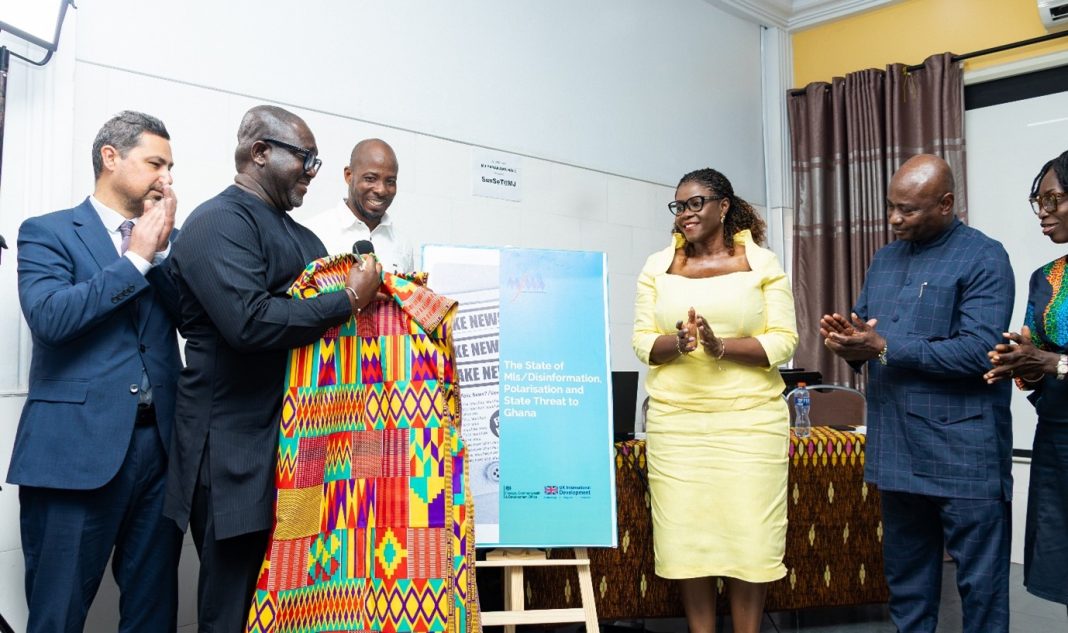The Media Foundation for West Africa (MFWA) has launched a novel research report titled The State of Mis/Disinformation, Polarisation and State Threat to Ghana, the first empirical study of its kind in the country. The 44-page report, which focuses on the 2024 elections, was officially unveiled in Accra on Wednesday, 26 March 2024.
The launch drew more than one hundred stakeholders, including representatives from the media, civil society, academia, political parties, the diplomatic corps, and state institutions.
Mr Hooman Nouruzi, Head of Political and Governance at the British High Commission in Ghana, was among the high-level guests at the event. Other key figures present included Madam Kathleen Addy, Chairperson of the National Commission for Civic Education (NCCE); Mr Benjamin Bano-Bioh, Director of Electoral Services at the Electoral Commission; and Mr George Sarpong, Executive Secretary of the National Media Commission (NMC).
The report, supported by the Foreign, Commonwealth and Development Office and UK International Development, is based on data collected from Ghana’s Northern, Ashanti, and Greater Accra regions.
Information pollution fuels affective polarisation
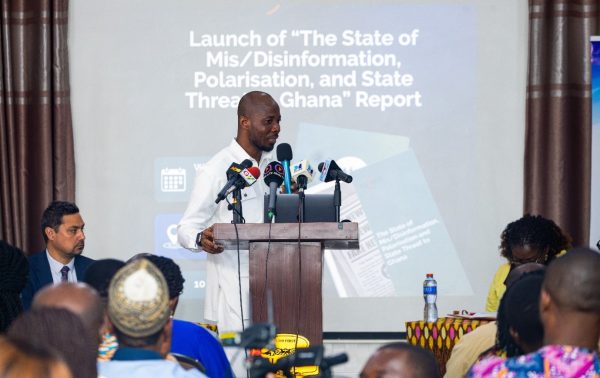
Dr Kojo Impraim, Director of MFWA’s Media for Peace and Social Cohesion Programme, explained that “affective political polarisation”, defined as the deep-seated resentment between opposing political groups, lies at the heart of the mis/disinformation crisis in Ghana and is promoting policy paralysis.
Dr. Impraim said, affective political polarisation has worsened with a middle ground that used to exist as buffer against partisan extremism within Ghana’s politics, erased. He said the collapse of this middle ground has deepened the duopoly between the two main political parties – National Democratic Congress and the New Patriotic Party, which have alternated political power since 1993 under the fourth republic.
‘’We used to have CPP and PNC represented in parliament but this middle ground has collapsed and left the two main parties in a duopoly which is too unhealthy for inclusive governance and consensus building on critical national policies. The two parties are trying to carry us along on this dangerous partisan path which cripples the growth of democratic values,’’ Dr. Impraim said.
He noted that Ghana’s winner-takes-all system has exacerbated the situation, making consensus on national policy difficult. He stressed the urgent need for collaborative strategies to address the twin issues of mis/disinformation and polarisation..
‘’This report, which I dare say is the first of its kind, provides us an empirical focal point with which we can really strategise against mis/disinformation, polarisation and state threat,’’ he said.
Not a new problem
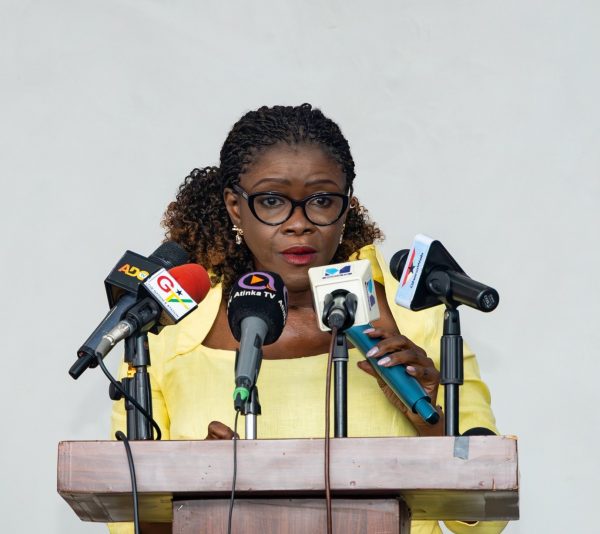
Delivering the keynote address, Madam Kathleen Addy of the NCCE described mis/disinformation as a long-standing threat to human interaction that has become more dangerous with the rise of digital technologies.
“In the digital age, information pollution is difficult to manage due to the speed and affordability of the internet, especially on social media,” she said.
She also warned about the emerging dangers of AI and deepfakes and called for decisive regulatory action to address these risks.
Mis/disinformation was in its all-time worst form in 2024 elections
Mr. Benjamin Bano-Bioh, Director of Electoral Services at Ghana’s Electoral Commission, echoed the sentiments of Madam Addy that mis/disinformation were exceptionally consequential in the 2024 elections.
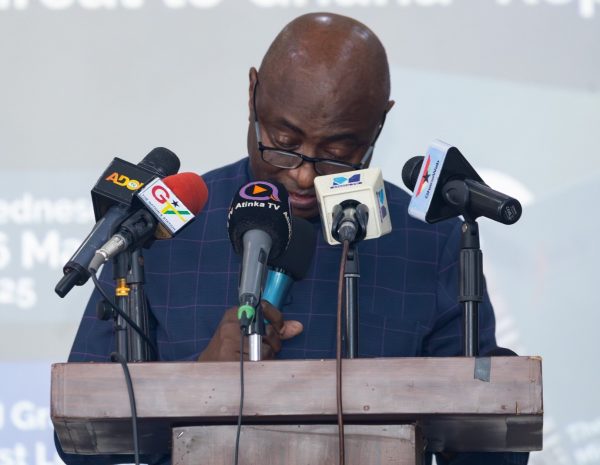
‘’This timely and important research undertaken by the Media Foundation for West Africa, comes at a crucial moment in our democratic journey as we reflect on the conduct of the 2024 elections, we must confront the realities of information disorder, propaganda narratives, and their impact on our electoral processes.’’
The Electoral Commission, he said, is committed to the principles of fairness, transparency and inclusiveness in Ghana’s electoral processes, and has since 1992, been standing as a beacon of democracy in Africa, and holding democratic elections that are largely peaceful.
“…the 2024 elections presented new and evolving challenges particularly in the digital information space. Misinformation and disinformation amplified through social media, created an environment of doubt, fear and suspicion among the electorate. This phenomenon, if left unchecked, poses a significant threat to the integrity of future elections.’’
Mr. Bano-Bioh urged that ‘’as a nation, we must draw valuable lessons from the events of the 2024 elections. The findings of this report should provide a roadmap for addressing information disorder in our electoral processes.’’
UK happy to support the production of report
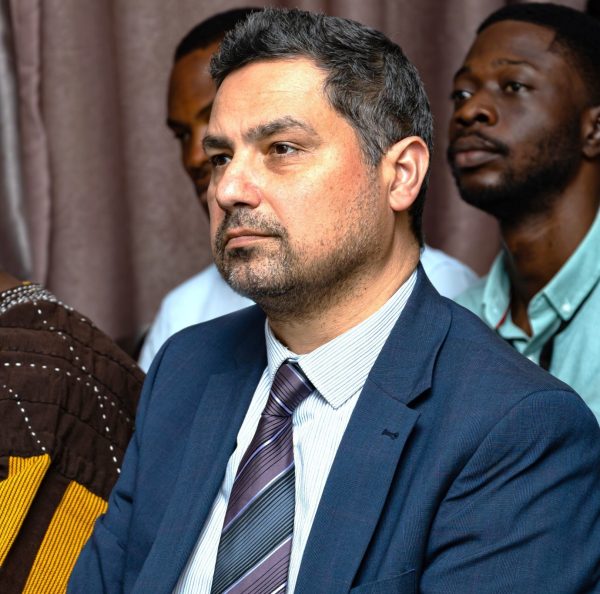
Mr. Hooman Nouruzi who represented the UK High Commission to Ghana, said the UK Government, through the Foreign Commonwealth and Development Office provided funding for the research, and is very pleased to support the project.
‘’in line with our objective as the UK government to partner Ghana and provide support for good governance and deepen democracy, we are very happy to be able to partner with the MFWA on this initiative documenting the extent to which mis/disinformation exist in Ghana and its impact and the response that we should all be able to act upon.’’
He pointed out that an independent, credible and impartial media contributes to information hygiene and forges confidence among its citizens. ‘’In view of this, the UK’s support in the training of 75 journalists and 25 social media influencers by the MFWA last year was a key intervention and we are proud of this achievement. We have also partnered the MFWA to sensitise 122 political party officials about their role in countering mis/disinformation and propaganda narratives in the leadup to the elections last year.”
Report will guide consultation on regulation against mis/disinformation
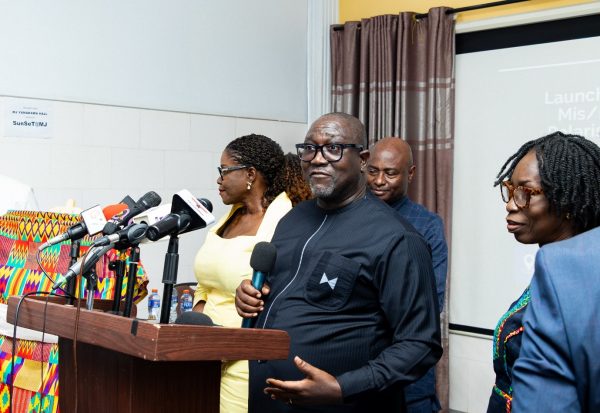
As part of the recommendations provided in the report, government was called upon to regulate against mis/disinformation by striking a fair balance between freedom of speech and online media (social media).
Mr. George Sarpong, the Executive Secretary of the NMC who launched the report said, the report is a good step that is progressive towards regulation of the digital space. Even though media literacy education, and fact-checking are important, experience shows that they are not sufficient for countering mis/disinformation, he said.
Mr. Sarpong acknowledged civil society’s concerns about freedom of expression but noted that since CSOs themselves are now recommending regulation, the report will serve as a key reference in the NMC-led stakeholder consultations to ensure future laws strike a fair balance between regulation and free speech.
Click here to access the report.

